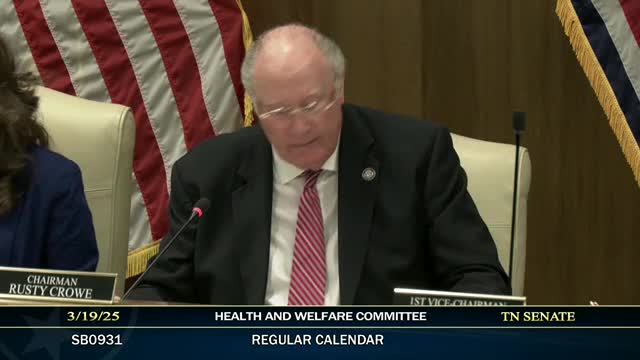Article not found
This article is no longer available. But don't worry—we've gathered other articles that discuss the same topic.
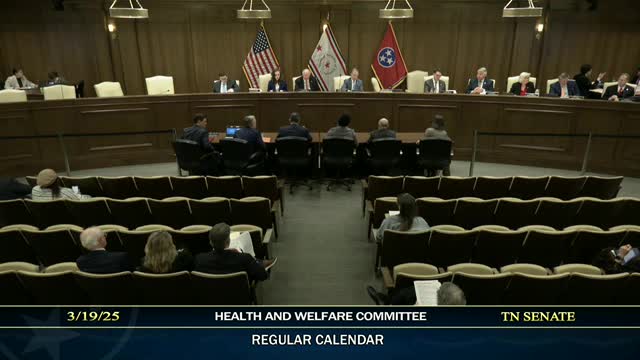
Tennessee Department of Health requests new funding for dental pipeline, cancer screening and rural grants
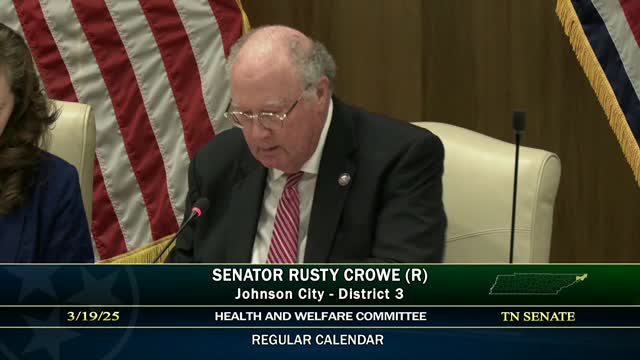
Senate Health and Welfare: committee approves multiple bills and sends them to calendar or finance
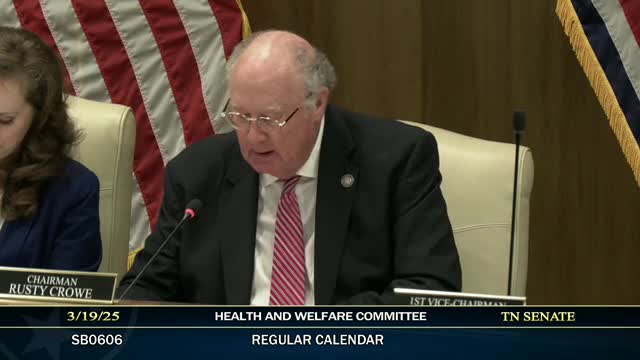
Committee approves $90 flat fee for third-party electronic medical records requests; lawmakers seek clarity on who pays
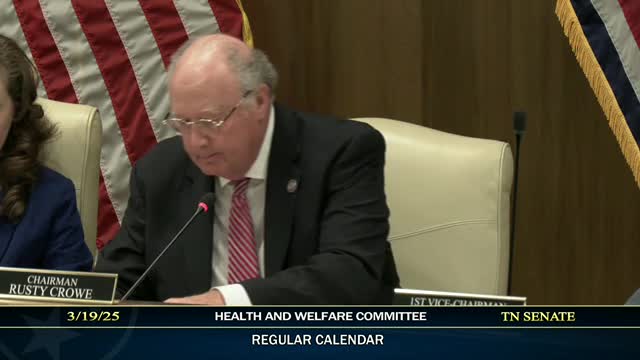
Citizen testimony prompts passage of homelessness study bill; committee sends TACIR report request to calendar
